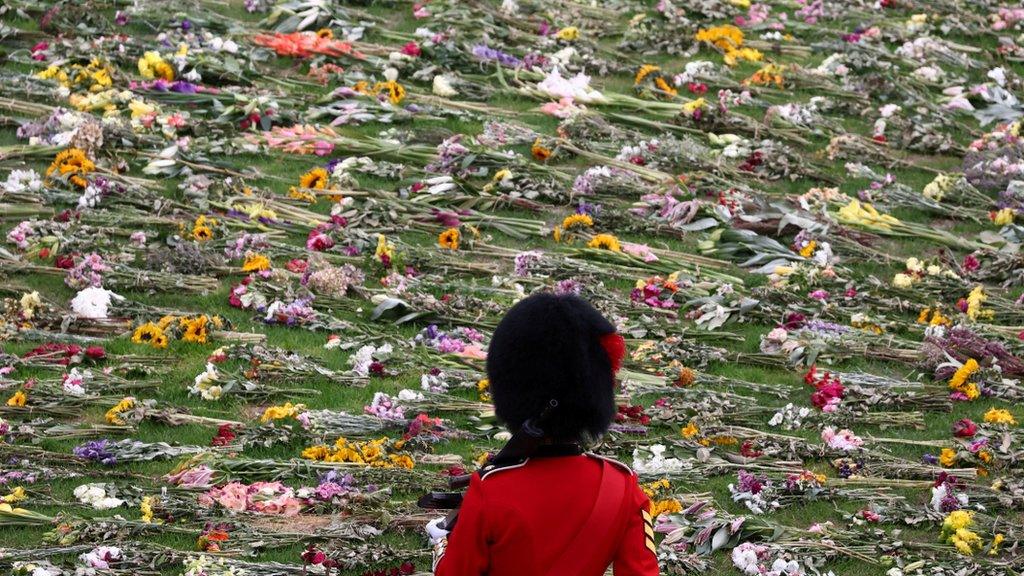Queen Elizabeth II: Why the state funeral will be an event beyond compare
- Published
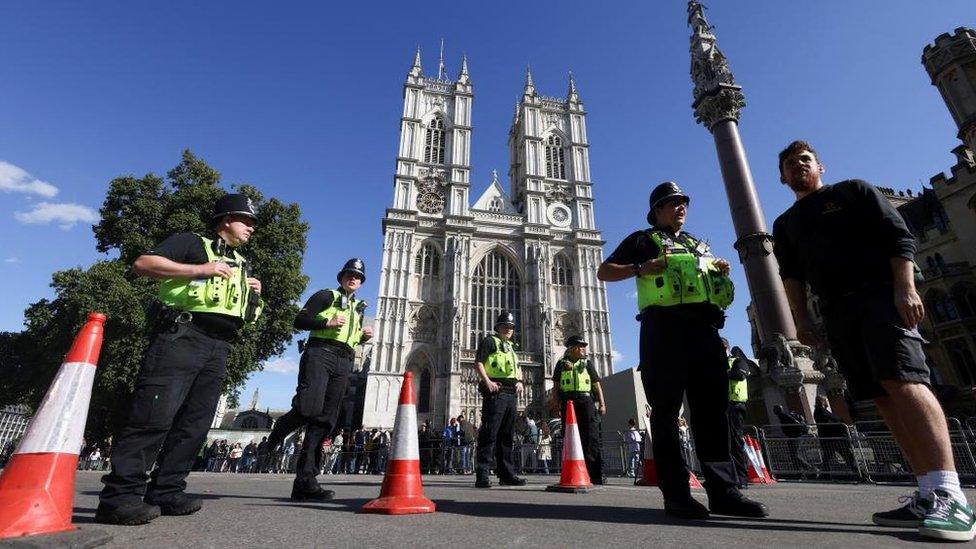
Perhaps no-one understood the potential power of a painstakingly organised event like the late Queen herself
Two thousand guests, 500 foreign dignitaries, 4,000 service personnel and potentially billions of people watching around the world.
Monday's state funeral for Queen Elizabeth II will be, in the 21st Century, an event beyond compare.
But around the poignant formalities and the sombre ceremony, the next 48 hours will also see the biggest single gathering of world leaders and politicians in living memory.
Monarchs, princes, presidents and prime ministers are in London for the funeral at Westminster Abbey. We'll hear from at least two of them on our show this Sunday morning.
Primarily, of course, the events are a hugely important commemoration of the Queen's death -a global tribute to the woman who was one of the most recognisable world leaders for so long.


One senior diplomat told me: "Everyone wants to come to Her Majesty's funeral because she is one of the family. There is a sense of belonging - this is a family funeral".
Yet perhaps some of the leaders flying in to pay their respects will have half an eye on what it means for them.
One diplomat told me: "This is the funeral of the century. Every world leader will want to see and be seen. Those that will not be here and not be seen will lose the greatest photo op of our times."
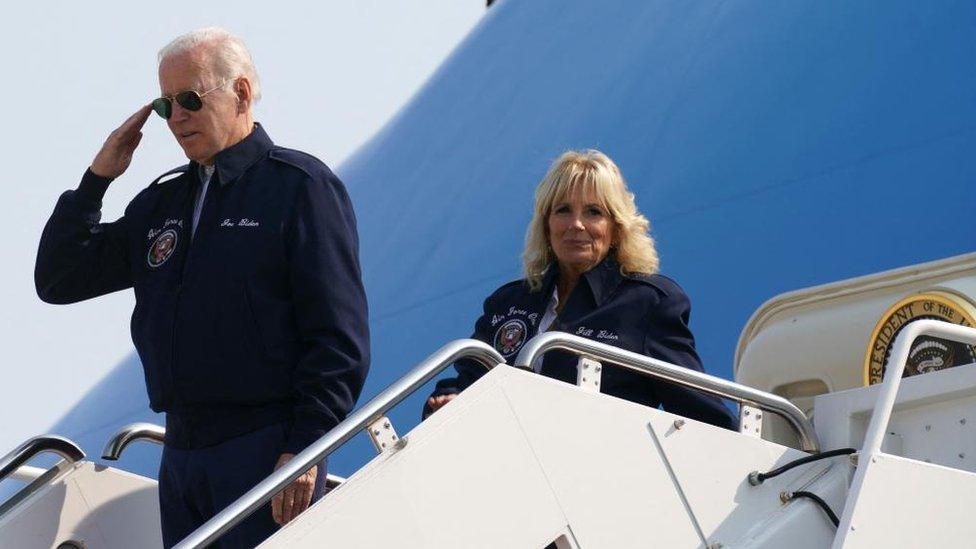
US President Joe Biden and First Lady Jill Biden boarded Air Force One on Saturday to fly to the UK
At summits over the years I've seen time and again the effect the royals have on visiting dignitaries.
There was always a scramble - sometimes it felt like a stampede - to get their picture with the Queen. I've seen prime ministers practically elbow each other out of the way to be the nearest to her.
But it is also a chance for the world, and leaders themselves, to see each other up close. Not just to see which prominent male leader wears inches of make-up, not just to see who has the most impressive plane on the tarmac (no surprise, it's Air Force One) but to find moments for what the diplomat Baroness Amos described as those "little nudges": snippets of conversation she said the Queen deployed to great effect in the margins of formal events.
It might be on the bus to Westminster on Monday morning, (and yes, prime ministers and presidents are getting the bus) or it could be in the throng of the King's reception on Sunday,
It could even be after the closing moments of the emotional service itself. Whatever the occasion, politicians and diplomats often seek out moments of opportunity - for a quiet word, a new personal connection, a chance to express a concern.
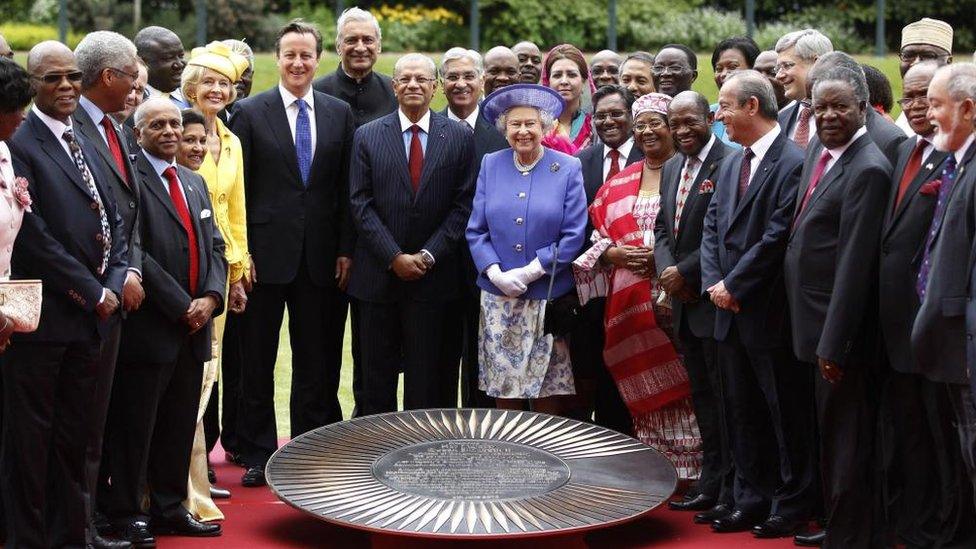
The Queen was no stranger to global summits - seen here at the Commonwealth Heads of Government meeting in 2012
The guest list itself is an expression of politics and power in 2022. Only a tiny number of countries are excluded completely - Russia and Belarus were not invited because of the war in Ukraine.
Others - Syria, Myanmar, Afghanistan and Venezuela - have been left out too. Cooler relations with some countries are expressed by invites only to ambassadors not leaders, like North Korea.
We also now know - after some to-ing and fro-ing in the past week - that Chinese leaders will be invited to attend the Queen's lying-in-state, despite some MPs saying they were assured the Beijing delegation would not be welcome in Westminster Hall.
The choices, the choreography, even the seating plan symbolise important decisions themselves.
One ambassador told me, the events do not "give a lot of space for diplomatic activity". World leaders flying in are here first and foremost to show their respects.
The length of the Queen's reign and her diplomatic celebrity were unparalleled and will be matched by an event without modern compare on Monday.
She was involved in its meticulous planning - and maybe no-one understood the potential power of a painstakingly organised event like the late Queen herself.
Sunday with Laura Kuenssberg is on BBC One from 09:00 BST on Sunday 18 September or you can catch it on BBC iPlayer
Related topics
- Published19 September 2022
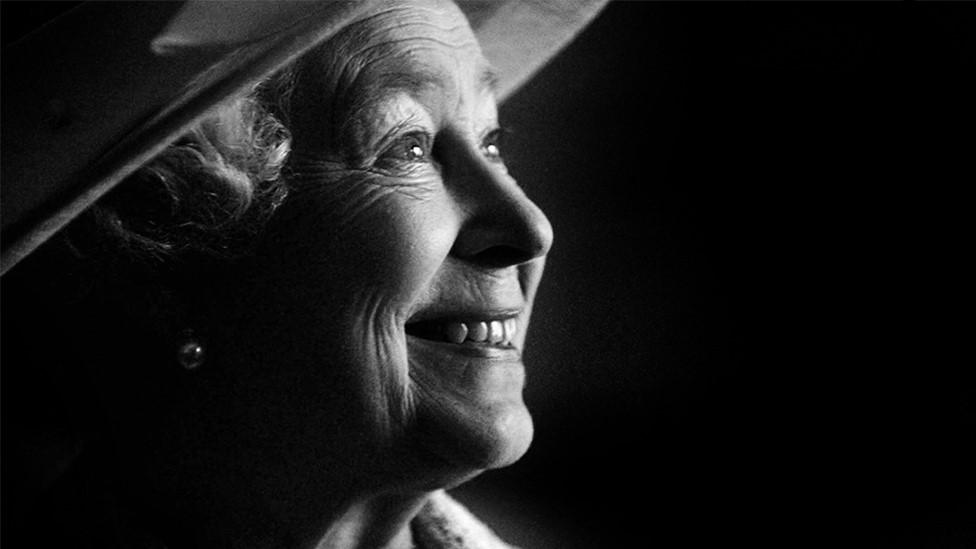
- Published19 September 2022
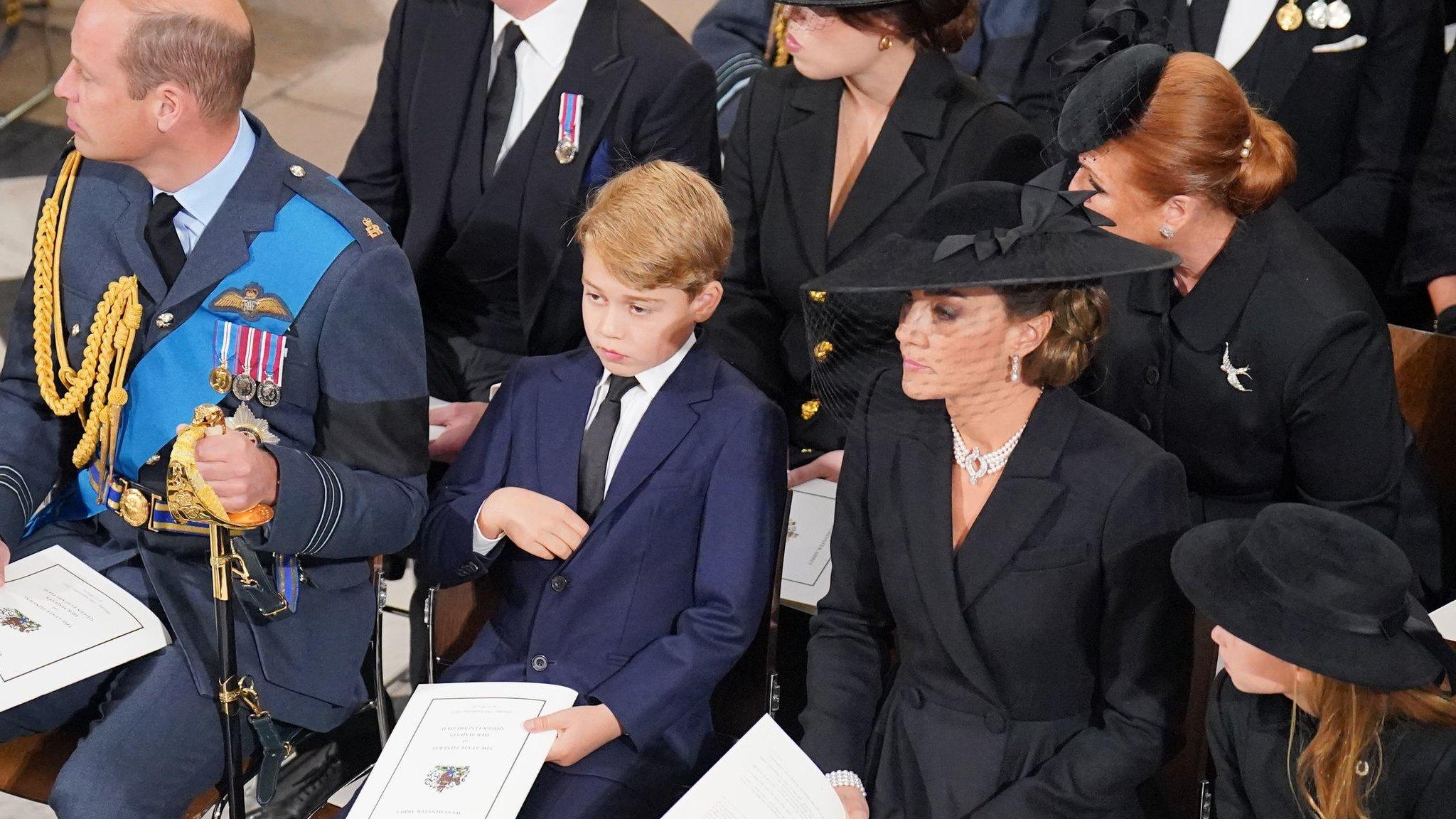
- Published20 September 2022
